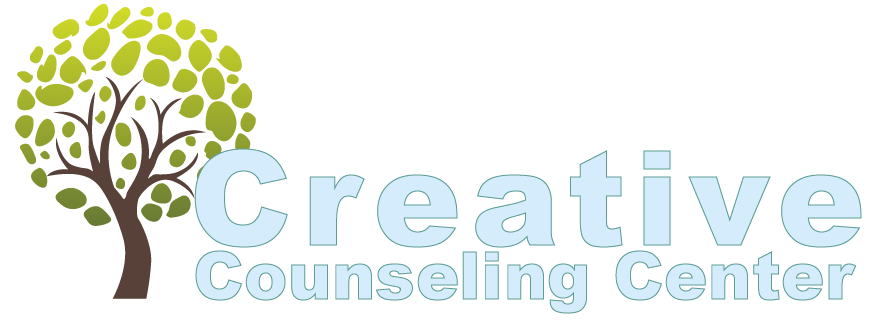Getting the Most Out of Therapy: The Importance of Advocating for Yourself
You’ve done the work and sought the support of a therapist who can help guide you in shifting unproductive thoughts and behaviors towards healthier ones. This step alone…getting started with a therapist…is to be celebrated as getting started is one of the most difficult steps in the therapeutic process.
Once you begin seeing your therapist, the first few sessions can feel challenging—particularly if you don’t have prior counseling experiences. You may have a lot of questions about why your therapist acts a certain way. For instance, why is my therapist so quiet? So talkative? Why is he or she looking at me this particular way? Maybe you think he or she ask too many questions, or not enough questions…
You may walk away from these initial sessions feeling puzzled. Perhaps you were expecting a therapist who just “gets” you and will help fix your problems. A snap of their fingers and, boom, you get to feel better! However, in order to get the most out of your counseling sessions with any therapist, it’s important to understand the importance of self-advocacy. and speaking up for yourself, voicing concerns, and asking productive questions.
Here are a few things to keep in mind to help you advocate for yourself and ensure you get the most out of counseling with any therapist:
1. Voice your wants and needs. As much as we wish we were, therapists aren’t mind-readers. We spend a limited amount of time with you each week. To make your session more productive and effective, we invite you to voice concerns, needs, and feelings you might be experiencing with regard to the therapeutic relationship.
2. Communicate your goals and expectations. We feel it’s important to meet our clients where they are in each session. This may mean that, while you and your therapist have discussed your overall therapeutic goals, you might feel venting or going off on a tangent in any given session would be more productive based on what’s going on for you in that moment. We are here for you and will follow your lead.
3. Ask for what you want. While venting can be productive, if you feel like that’s all you’re doing, let your therapist know what approach you prefer instead. If you want “tough love” or to be redirected, we want to know! Many therapists can be more directive in a session, if that’s what you desire.
4. Express frustrations and disappointments. If you become frustrated in therapy because you feel your needs are not met, let your therapist know. Open communication is part of healthy relationships, particularly in therapy. Let your counselor know when you’re feeling “stuck” or spinning your wheels so they can adjust their approach, revisit goals, reassess where things are to best help you continue moving you forward.
The relationship you have with your therapist is just like any other: communication is key. If you struggle with communicating your needs, wants, desires, disappointments and frustrations, one of the safest spaces to practice and hone your skills is with a counselor, in a therapeutic setting. In the end, open communication will allow your therapist to provide you with the best possible therapeutic experience and outcome.
Are You Ready to Talk to a Counselor?
Creative Counseling Center employs some of the best therapists in Denver, each with a unique therapeutic specialty. We work with children, teens, and adults, treating a variety of conditions, including abuse and neglect, depression, anxiety, grief and loss, anger management, life transitions and more. We would love the opportunity to partner you with one of our therapists who’s best equipped to support you and your goals for counseling. Request your free phone consultation today! No Fields Found.
Contact Us
We will get back to you as soon as possible.
Please try again later.

ABOUT THE AUTHOR
Teri Karjala is a Licensed Professional Counselor & Marriage and Family Therapist. She is the founder and Executive Director of Creative Counseling Center, LLC. Working in the field since 1999, Teri and her team of therapists specializes in counseling for those who have experienced trauma. They work with children as young as age 2, as well as teens and adolescents, adults, seniors, families, and couples.
REQUEST A FREE CONSULTATION
If you have questions about counseling, would like to find out if counseling could help you or a loved one, or are interested in learning more about our services, just complete the brief form below to request a Free Phone Consultation. A member of our team will contact you shortly. After a brief conversation, we'll determine together whether our practice is right for you and which therapist may be best suited for your specific circumstance.
Finding the right therapist, one you click with, is less about the therapist's experience and qualifications and more about the therapist's personality. So let's talk. Let us match you with a therapist you have a high likelihood of clicking with.
Fields marked with an * are required.
Contact Us
We will get back to you as soon as possible.
Please try again later.
GET SOCIAL WITH US
CONNECT WITH US
PHONE
EMAIL US
ADDRESS
6021 South Syracuse Way, Suite #216
Greenwood Village, CO 80111
OFFICE HOURS
Monday-Thursday: 8:30am-8pm
Friday: 12pm-5pm
Saturday: 12pm-4pm



